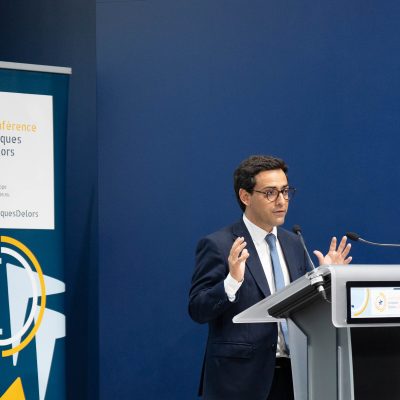A deepened Single market for labour and digital innovation
In this Policy paper, Paul-Jasper Dittrich outlines proposals for a genuine European labour market and product market reforms in the digital sector.

Paul-Jaspers Dittrich, research fellow in our office in Germany, the Jacques Delors Institut – Berlin, argues that the EU needs higher productivity growth. Higher factor mobility, especially of labour, but also of capital or knowledge and technology, would benefit European citizens as it enhances the efficient allocation of resources and thus boosts productivity and welfare in the Single Market. A higher geographic labour mobility and a genuine European labour market can become a major factor in putting the EU on a track of more economic and productivity growth and less cyclical unemployment.
Product market reforms in the digital sector can boost TFP-growth. The Digital Single Market (DSM) should become a cornerstone of future productivity growth. Several measures should be taken up to meet these objectives. The European Job Mobility Portal EURES could become a European employment agency in the long-term. National employment agencies should cooperate more and exchange information in a European database on vacancies. A better functioning job placement system has to be accompanied by discretionary measures designed to bring young people in training and jobs and address skill shortages. One proposal for this is the Erasmus Pro: One Million European apprentices by 2020-initiative. Member states should simplify their recognition procedures and open up “closed professions” such as architects, accountants or engineers for European citizens.
National policy action has to accompany European regulation: Southern European countries need to introduce more elements of flexi-curity and life-long learning into their national policy mix. Countries like Germany should invest more in higher education as unfavourable demographics will otherwise lead to accelerating skill shortages.
The drive towards a European labour market should be accompanied by prioritised policy actions to manage the digital transformation. A functioning Digital Single Market accelerates the diffusion of new ideas, business models and technology, thus boosting TFP. Policy-makers should prioritise actions with a focus on productivity growth. E-commerce is a rapidly growing segment which should make better use of the Single Market. Mobile markets need more competition for companies and more coordination among MS for the assignment of spectrum licenses. This could lead to a faster adaption and diffusion of the coming 5-G technology, in turn supplying the EU with a competitive edge for the development of new services and products in the era of inter-connectivity and the Internet of Things.




